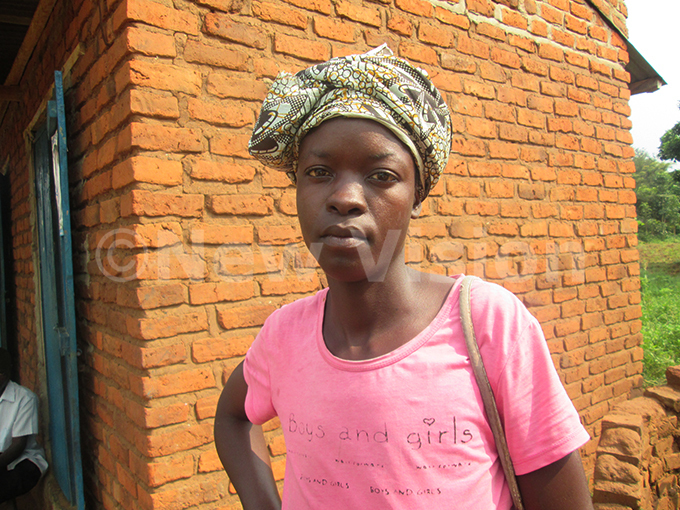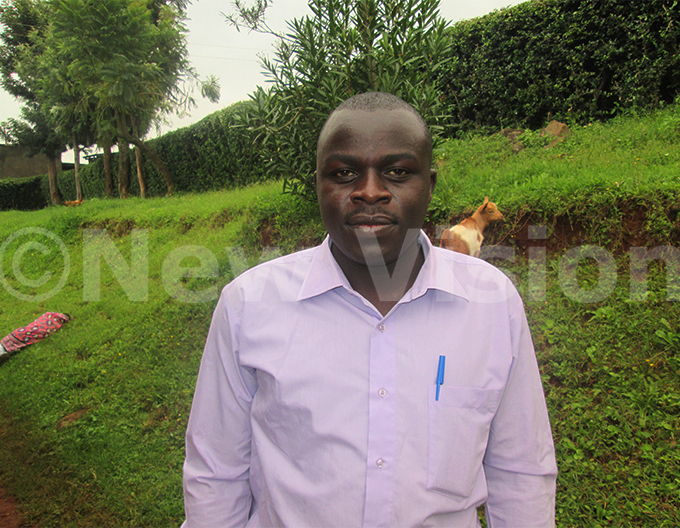Procurement reforms: Has health service delivery improved?
Jun 01, 2016
As the sun wakes up over the mountainous Sebei region, and two women, trying hard to sooth their sobbing babies, trudge past Fausiya Abas’ shop in Tegeres sub-county, Kapchorwa district

As the sun wakes up over the mountainous Sebei region, and two women, trying hard to sooth their sobbing babies, trudge past Fausiya Abas' shop in Tegeres sub-county, Kapchorwa district.
"I know those women; they are from Chema (a neighboring sub county). They walk three kilometers to cross a river to come to Tegeres Health Centre because the health centre in their sub county does not have enough drugs," she says.
So is Tegeres Health Centre III any better than her health centre II counterpart in the neighboring sub county?
Chemutai Peter, 30, says availability of drugs at Tegeres Health Centre is always a case of "hit and miss."
"Sometimes you will get drugs, especially the commonly used ones like anti-malarial, and other times, you will be referred to go to the private clinics for medication," he says.
 Akello Justine, a resident of Nangogera often goes to private clinics for drugs as they are not enough at katajula health centre
Akello Justine, a resident of Nangogera often goes to private clinics for drugs as they are not enough at katajula health centre
Down to the lowlands of Nagongera Sub County in Tororo district, Justine Akello, 25, says she does not even bother to go to the nearby Katajula Health Centre III. In fact, when the New Vision visited the facility, it was closed.
"As you can see for yourself, the health centre is closed. Even when it is open, there are no drugs in it, so I stopped bothering myself with it. I go the drug shops instead," she says as she waits for her bicycle to be fixed at Katajula trading centre.
Over in the northern district of Nebbi, Peter Othembi, a 60 year old peasant farmer in Patongo village in Nebbi sub-county often does not find the drugs he wants at Jupangira Health Centre two along the Nebbi-Paidha road.
"The situation is bad. I sometimes have to walk up to Paidha town to get some drugs," he laments.
 Chemutai Milton of Tegeres Health Centre says they sometimes receive drugs which we do not need
Chemutai Milton of Tegeres Health Centre says they sometimes receive drugs which we do not need
Procurement law amendments
The Ugandan healthcare system has been plagued with inadequate drugs in facilities, especially health centres. During the public procurement symposium in September 2012, Moses Kamabare, General Manager of the National Medical Stores a then long procurement cycle for the delay in the procurement of drugs.
Due to the long procurement cycle, entities could spend up to even nine months just procuring one item.
All drugs in public health facilities are procured in accordance to the PPDA Act. The body that is mandated with these procurements is NMS. Without proper procurement management, there cannot be drugs in health facilities.
At that time, the Public Procurement and Disposal of Public Assets Authority (PPDA) Act of 2003 was being revised.
These efforts eventually culminated into the PPDA Amendment Act which came into force on March 3rd 2014.
To shorten the procurement process, the amendments had reduced bidding periods and removal of minimum advertising periods for bid notices
The requirement for contracts committee approval of the recommendation to conduct post qualification was also eliminated.
The amendments empowered accounting officers further, by striking down the provision of them seeking approval seeking PPDA approval for deviations and grant of waivers. The new law gave accounting officers the mandate to take a decision in circumstances where the entity wishes to deviate from the PPDA law but he takes responsibility for his decision.
In emergency situations, accounting officers were given allowed to constitute themselves into a contracts committee and take decisions on procurement.
Special thresholds for NMS
Due to the unique nature of the medicines and other medical supplies, the amended law gave the National Medical Stores special treatment.
Unlike other Procuring and Disposing Entities (PDEs), special thresholds were introduced under the new law for NMS.
For open bidding, the new law gives NMS leeway to procure drugs irrespective of any value, on condition that the providers are registered by National Drug Authority (NDA) except in cases where NDA has not registered any provider for a specific requirement.
While the ceiling for restricted bidding for other entities in the new law was put at sh500m, the threshold for the procurement of medicines and other health supplies is much higher at sh2bn.
For request for quotations, the thresholds for other entities was put at sh100m, while for NMS, it was raised ten times to sh1bn.
While Micro Procurement thresholds for other entities were put at sh5m for other entities, for NMS, it was put at sh100m.
The new law also provides for the use of alternative system to cater for the special nature of procurement of medicines and medical supplies.
NMS says the amended law has improved the speed at which they procure medicines and other medical supplies much faster, and that they now deliver these on time to health facilities across the country.
"We actually do not deliver drugs on time, but two weeks ahead of schedule. On that, I am 101% sure," says Dan Kimosho, the Public Relations Officer of NMS.
"Before the beginning of every financial year, all public health facilities give us their procurement plans for the year. These are the plans that we use to supply them throughout the year."
Drug shortages persist
Despite NMS saying that the new changes have improved and that they deliver drugs on time, several health centres across the country still do not get adequate drugs, two years on from amendment of the PPDA act.
Agenonga Janero, the in charge of Jupangira Heath Centre II says the health facility often times runs out of drugs.
"I am near Goli Health Centre IV, when I am missing some drugs; I borrow some drugs from them. It has been difficult to inquire, because even the order is not done directly from us, for us, we only receive what is given to us," he says.
"There are many asthma and epileptic cases, but the drugs are not brought, so it becomes difficult for us to help them."
At Tegeres Heath Centre III, it is a case of inadequate drug reserves, as it is of erratic supplies.
"Our drugs come on schedule as per the NMS zones; the challenge is the drugs are not always enough. We do not sometimes get enough of the essential drugs that we need," explains Milton Chemutai, an enrolled nurse at the facility.
"We sometimes receive drugs which we do not need, many times, in excess quantities, and they often get expired. For example, we are still supplied with quinine yet we rarely use it because of its adverse side effects. We use coartem instead to treat malaria," he says.
In fact, when New Vision visited the facility, Chemutai and his colleagues were stuck with 13 boxes of dextrose, which they said they do not need, and yet they were left only with two boxes of coartem, which they urgently need for the patients queuing up to get treatment for malaria.
Chemutai echoes Agenonga's sentiments, and says the problem is partly due to fact that smaller health facilities do not get to order for their own supplies like hospitals do.
Sylvia Auma of Adyel Health Centre III in Lira district, Patrick Ogwang of Awei Health Centre II in Moroto district, and John Twasiime of Rwimi Health Centre III in Kabarole district say they receive supplies from NMS, but they are not enough.
"Sometimes, the drugs we receive are so little that after one month, we are out of stock. We just sit and wait for the next round," says Twasiime.
 Fausiya Abas says often Tegeres and Chema health centres run out of drugs
Fausiya Abas says often Tegeres and Chema health centres run out of drugs
Where is the problem?
So if NMS procures drugs faster, why exactly aren't some health facilities getting medicines and other medical supplies?
Kimosho says health facilities that do not receive drugs on time only have themselves to blame.
"I cannot speak on behalf of the health facilities, but many times, these facilities tend to forget their procurement plans. And you cannot stop at the procurement plan; you have to follow it up with another order. If you do not do this, NMS will send you 80% of what you indicated in your procurement plan," he argues.
"We will assume that since the item was in your procurement plan, you need it, but you could have forgotten to do a follow up with us."
Patrick Ojilong, a health systems expert says the districts bare a big responsibility for drugs not reaching health centres. He says district health offices have failed to successfully liaise with lower level health facilities to get drugs to the people at the grassroots with more precision.
"NMS' supply chain has improved, although there are a few cases of delivery of the wrong drugs. The greatest challenge is inaccurate forecasting by the health centres and at the district level," he says.
"Many of the in charge of health centres simply get the template from the previous year, make a few minor changes to it, and then send it to NMS without critically looking at the trend of cases they have been having."
"There are months, especially the rainy seasons, when cases of malaria rise. Do the health facilities actually take this into consideration?"
Michael Mwanga, the DHO of Kapchorwa district admitted that there are cases of stock out of drugs in health centres in the district from time to time, but overall, supply of drugs to facilities has improved.
He confirmed that Chema Health Centre II was not receiving drugs.
"Chema is relatively new health centre that was established in 2011, but it has no drugs. I have tried to raise the issue with the Ministry of Health and National Medical Stores, and up to today, the situation on the ground is yet to improve," he says.
Jakor Oryema, and Cony Bwire, the District Health Officers (DHOs) of Nebbi and Tororo districts respectively declined to speak to the writer of this story when he knocked on the doors of their offices.
A Ministry of Finance, Planning and Economic Development report titled released last year titled "Continuous stock-outs of medical supplies in Uganda: What are the root causes?". The report pinned NMS on non-supply of ordered items cited poor planning for drug shortages across the country.
"Poor planning and forecasting characterised by failure to present adequate and timely procurement plans by both health facilities and District Health Officials. The situation is worsened by increasing population, inadequate drug budgets and sometimes changing disease patterns. This caused drug shortages and expiries at various entities monitored," the report says.
Way forward
Despite the best intentions of the amendments to the PPDA Act to improve efficiency n the procurement of medicines and medical supplies, poor planning, lack of coordination between several stakeholders in the health service delivery chain still leave many patients without drugs at health facilities across the country.
Many have to turn to private facilities for medicines, and those that do not have bottomless pockets stare death in its face.
PPDA executive director Cornelia Sabiiti concurs with Ojilong, and says there is a gap in planning along the chain.
She reasons that going forward, besides improving on planning, health facilities need to logistics supports staff.
"Hospitals and other facilities have employ capable people in stores, pharmacies, and not only focus on doctors and nurses. This is what will strengthen the NMS system. A doctor does not procure drugs, but when they go to the theater, the drug has to be there."
The big question though remains; will government hire logistics officers for health facilities when there is already a shortfall of primary staff, the medical personnel?
As idealistic as Sabiiti's proposition sounds, Dr. Elioda Tumwesigye, the minister of health concurs with it.
"Ideally, we should have logistics officers in health facilities, so that health facilities can forecast better. We shall look into this in the future. As of now, we need to train those in charge of health facilities so that we can improve their forecasting capabilities," he says.
The minister also says the budget of NMS needs to be increased so that more drugs are procured for health facilities across the country.
During FY 2014/15, the budget for the Essential Medicines and Health Supplies (EMHS) basic kit for health center two was sh11.16b. However, according to the ministry of finance, only sh3.44 (30%) was released and 100% spent by 31st December 2014.
"With the currency depreciation, we have had to buy fewer drugs that we thought we would. Generally, the supply chain of drugs to health facilities has improved; the issue is now with the quantity."
The ministry of finance report recommends that NMS should step up its planning, budgeting and coordination efforts so that all health units receive their full order requests. .
"The NMS should establish electronic drug monitoring systems right from delivery to prescription and dispensing to patients. This will translate into proper planning, timely detection of stock outs as well as reliable forecasts of the populations' drug requirements per facility in Uganda," the report further states.
This story was supported by a reporting grant from the African Centre for Media Excellence (ACME)
ENDS
